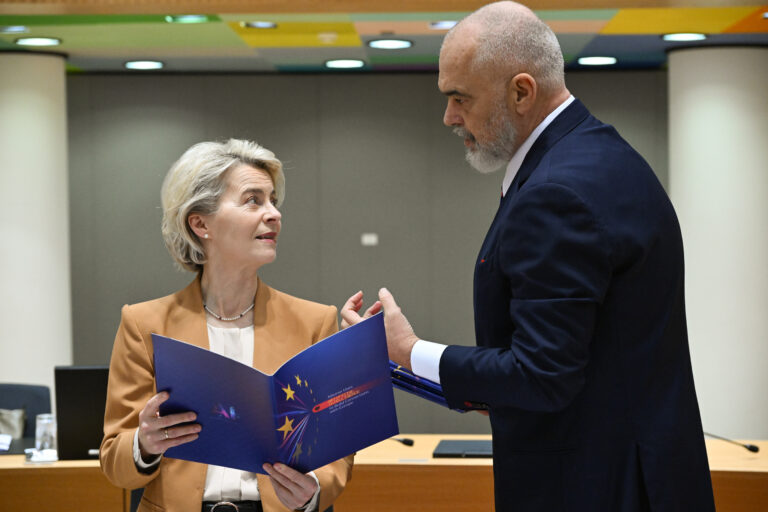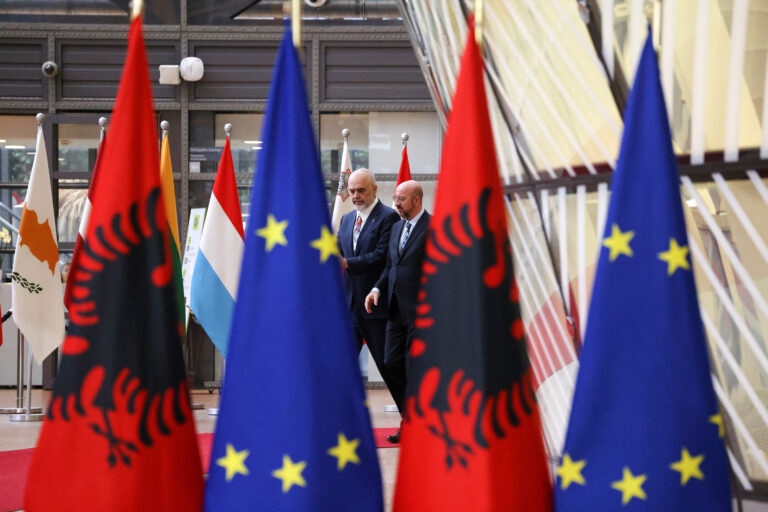Western Balkans
- Filter byAll
- Filter byEastern Neighbourhood
- Filter byEuropean Union
- Filter byRe-Engage
- Filter byWestern Balkans
-

Theory and methods – towards social theory?
This paper explores the relationship between theory and method and serves as a basis for further studies in the project's focus areas the Western Balkans and the Eastern Neighbourhood.
-

Separate to integrate: EU enlargement and the trouble with bilateral disputes
That EU enlargement is a geopolitical imperative is no longer in doubt. But to make enlargement happen, the EU may need to decouple bilateral disputes from the accession process.
-

Before it’s too late: How the EU should support the Western Balkans’ EU accession
With Russia’s war on Ukraine raging on its eastern border, EU enlargement in the Western Balkans has a new geopolitical urgency. The EU must commit to supporting their accession – and a fixed date like 2030 alongside a staged approach will add credibility to this commitment